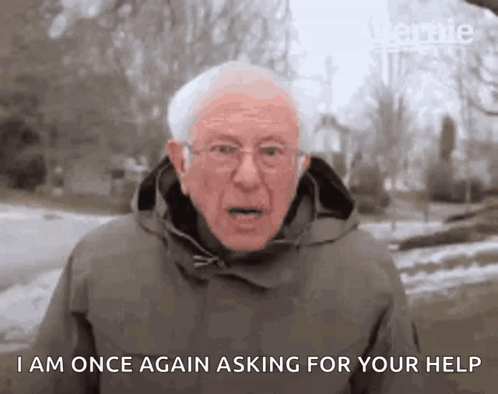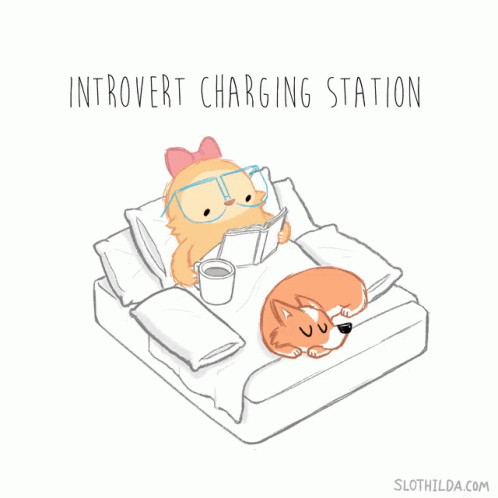7 Ways to Ask for Help (Without Sounding Weak)
Unsure how to ask for help? You’re not alone. These scripts make it as easy as copy and paste.

In the last lesson of this mini-course, we talked about getting unstuck, how to take one small step forward when stress makes everything feel immovable.
You might have noticed at the core of that story was me getting advice from other people on the smallest type of change I can make that would lead to the best results.
Today, let’s talk about how you too can get help moving forward.
The Help I Didn’t Ask For

Back in 2011, I was finishing my Ph.D. training at Bellevue Hospital in New York City. I was running late one morning, sprinting to catch the downtown 2nd Ave express bus. I just missed it. And as it drove off, it hit a puddle, spraying me head to toe with that special kind of filthy New York street water that had been sitting there for weeks. I was soaked, humiliated, and smelled like mold.
When I finally snuck into the hospital, trying to avoid my supervisors from realizing how late I was, my friend Courtney noticed something was off. She looked at me and asked, “You okay? You seem a bit preoccupied.”
I told her what happened. The missed bus, the splash, the paranoia about how I smelled, and the dread of the 12-hour workday ahead. She didn’t try to fix it or minimize it. She just said, “Ugh, that sucks. I’d be so pissed if that happened to me.”
I immediately felt less unhinged. Less alone. Like I could put my guard down just a bit.
That’s social support.
Psychologist Shelly Taylor puts it like this:
“Whereas other animals are armed with weapons, such as sharp teeth or claws, and defensive resources such as thick skin and speed, primate species depend critically on group living for survival.”
We evolved to deal with stress through others.
My working definition: Social support is getting help in the way you want to be helped and giving help in the way the other person wants to be helped.
Sometimes that means talking about what’s on your mind. Sometimes it means just being together and not talking about what’s on your mind.
With the right kind of support, you can:
- Get a break from your stress
- Receive tangible help
- Learn from people who’ve lived it
But the kind of social support I got that day in NYC, well it doesn’t happen as much anymore. That was before smartphones were everywhere. Before remote work made daily connection optional. Before I had kids, responsibilities, and a schedule so full I barely see my own friends.
Support used to happen more automatically. Now we have to engineer it.
So that’s what I’ve done.
Below are real messages I’ve sent or coached others to use. They’re all framed as texts but you could easily turn these into emails or IRL talk.

1. When You Want to Talk
- “Can I get your take on this? I need a second opinion…”
- “It’s been a loooong week. You want to hangout sometime soon? Maybe we can get something to eat.”
- “I’m really, really overwhelmed about something. Can I share a little about what’s going on? I think it might help just to talk it out with you.”
2. Practical Help
- “Do you have any free time in the next few weeks? I really could really use your help with something. Should only take about an hour.”
- “I’m a bit behind on my assignments and could really use your advice on how to catch up. Is there a good time I could come in to talk about this with you?”
- “Question for you…how does one even do laundry and dishes? Cause I feel like giving up over here.”
3. Information and Advice
- “I’m trying to make a big decision, but I keep going in circles. Can I talk it through with you?”
- “Something feels off with [situation]. I’d love your honest opinion on it.”
- “Can I run something by you? There’s this situation that just doesn’t feel right to me.”
4. Easy Conversations
- “It’s been awhile. How are things going?”
- “I’m sitting here with nothing to watch. Got any recs?”
- “I was just thinking about you! Remember that time when we…?”
- “This is totally you [insert social media link]”
5. Online Communities
If talking to someone you know isn't an option, try posting on a Reddit community like:
Just remember that Reddit might not be reflective of the same people you’d interact with around your home (i.e. they’re often younger and snarkier).
6. Generative AI
You can also try chatting with AI (chatGPT, Claude, Gemini, etc). A lot of people feel less judged with AI and more comfortable talking about personal topics.
AI won’t replace real relationships, and it is just guessing at what's the best thing to say (which can lead to mistakes), but it can help you warm up to conversations or get unstuck when reaching out feels too hard.
Here are some prompts you can use:
- “Can you help me sort out what I’m feeling?”
- “Can you help me feel less alone right now?”
- “Can you give me a little pep talk for getting through today?”
- “I’m feeling stuck. Can you help me figure out what to say or do next?”
- “Can you help me write a message to someone I want to reconnect with?”
- “Let’s do a little journaling together. Can you ask me a reflective question to start?”
- “Can we have a casual chat? I just want a bit of company right now.”
You might like using voice mode for this instead of text, though that's usually a paid feature.
7. Crisis Support
I have a lot of linked resources that can help you connect with crisis support if you immediately want someone to talk to.
It’s Not About Being Social All the Time

You don’t need dozens of friends or a group chat full of hot takes. You just need the right support from one person.
It’s going to take some experimenting to figure out who is the right type of person for the right type of support. When you get unsolicited advice or over-helping...that can make you feel worse. The more you try the better you’ll figure out how to do this in a way that works for you.
And if you feel guilty about asking for help, remember this: Studies show people who give support often benefit as much if not more than those who receive it. Social support is mutual medicine.
Your Turn
Take one of these templates and make it your own. Even if you don’t send it yet, just knowing you have it ready can help.
In the next lesson I show you how to stop the flow of unnecessary stressors.
Talk soon,
Dr. Ali